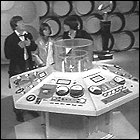 The 253rd episode of Doctor Who airs on the BBC. Jane Sherwin, David Savile and Philip Madoc guest star. The Time Lords make their earliest appearance in this story. This is Patrick Troughton’s final episode as the incumbent Doctor, the final Doctor Who episode of the 1960s, and the final episode made in black & white.
The 253rd episode of Doctor Who airs on the BBC. Jane Sherwin, David Savile and Philip Madoc guest star. The Time Lords make their earliest appearance in this story. This is Patrick Troughton’s final episode as the incumbent Doctor, the final Doctor Who episode of the 1960s, and the final episode made in black & white.
The following weekend, BBC1 gives Doctor Who’s Saturday evening time slot to the first British airing of an American science fiction series called Star Trek.
This timeline entry leads to an entry covering this entire Doctor Who serial; there are plans to write new episodic entries in the future. You can support this effort!
Order Earl Green’s book VWORP!1 from theLogBook.com Store

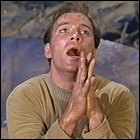 Picked up by the BBC as a summer replacement for Doctor Who, which has just ended its sixth season with the departure of its entire cast, Star Trek begins its run on BBC1 with the episode
Picked up by the BBC as a summer replacement for Doctor Who, which has just ended its sixth season with the departure of its entire cast, Star Trek begins its run on BBC1 with the episode 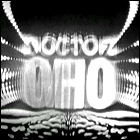 Another round of tape-wiping eliminates more of the recorded history of Doctor Who at the BBC. The instructions to erase the final remaining Hartnell-era episodes go out, as well as an order to get rid of much of Patrick Troughton’s era. Where previous episode wiping sprees may have been sparked by a looming change of video standards, these latest erasures are more likely the result of BBC1’s impending switch from black & white to color after the successful launch of color broadcasting on BBC2 in 1967. The BBC deems non-news-related black & white material commercially unviable with the advent of color TV just around the corner – a decision that Doctor Who fans (and the BBC’s home video department) will regret years later. While many of the Hartnell episodes are recoverable from foreign markets at a later date, much of the Troughton era is lost forever – mere weeks after initial broadcast.
Another round of tape-wiping eliminates more of the recorded history of Doctor Who at the BBC. The instructions to erase the final remaining Hartnell-era episodes go out, as well as an order to get rid of much of Patrick Troughton’s era. Where previous episode wiping sprees may have been sparked by a looming change of video standards, these latest erasures are more likely the result of BBC1’s impending switch from black & white to color after the successful launch of color broadcasting on BBC2 in 1967. The BBC deems non-news-related black & white material commercially unviable with the advent of color TV just around the corner – a decision that Doctor Who fans (and the BBC’s home video department) will regret years later. While many of the Hartnell episodes are recoverable from foreign markets at a later date, much of the Troughton era is lost forever – mere weeks after initial broadcast.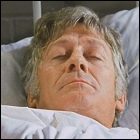 The
The 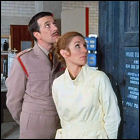 The
The 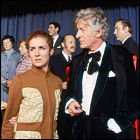 The
The 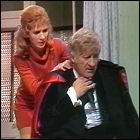 The
The 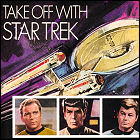 Picked up in syndication by Kaiser Broadcasting’s station group and other independent TV stations across America – often those with no newscast of their own – Star Trek sees its ratings skyrocket. The Kaiser stations run it directly opposite local and network newscasts at 6:00pm in most markets. Paramount Television runs an ad in Broadcast Magazine, claiming that New York City independent station WPIX has shown a 96% gain in ratings over the previous programming in the same time slot. In Los Angeles, KCOP’s nightly Star Trek reruns boost ratings 77%. It is from this culture – the nightly reruns of the 79 episodes reaching saturation point – that Star Trek fandom truly arises, gradually leading to an outcry for new material that gets Paramount’s attention later in the ’70s. With most of the cast battling typecasting, the conventions prove to be a lucrative draw for the show’s stars (and creator Gene Roddenberry, who becomes a popular speaker at conventions).
Picked up in syndication by Kaiser Broadcasting’s station group and other independent TV stations across America – often those with no newscast of their own – Star Trek sees its ratings skyrocket. The Kaiser stations run it directly opposite local and network newscasts at 6:00pm in most markets. Paramount Television runs an ad in Broadcast Magazine, claiming that New York City independent station WPIX has shown a 96% gain in ratings over the previous programming in the same time slot. In Los Angeles, KCOP’s nightly Star Trek reruns boost ratings 77%. It is from this culture – the nightly reruns of the 79 episodes reaching saturation point – that Star Trek fandom truly arises, gradually leading to an outcry for new material that gets Paramount’s attention later in the ’70s. With most of the cast battling typecasting, the conventions prove to be a lucrative draw for the show’s stars (and creator Gene Roddenberry, who becomes a popular speaker at conventions). 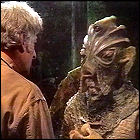 The
The 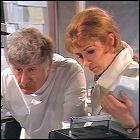 The
The 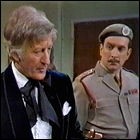 The
The 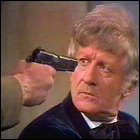 The
The 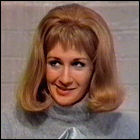 The
The 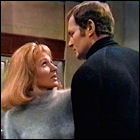 The
The 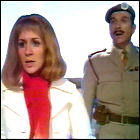 The
The 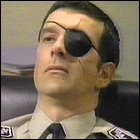 The
The 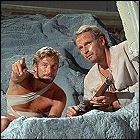 The first sequel to the original film,
The first sequel to the original film,